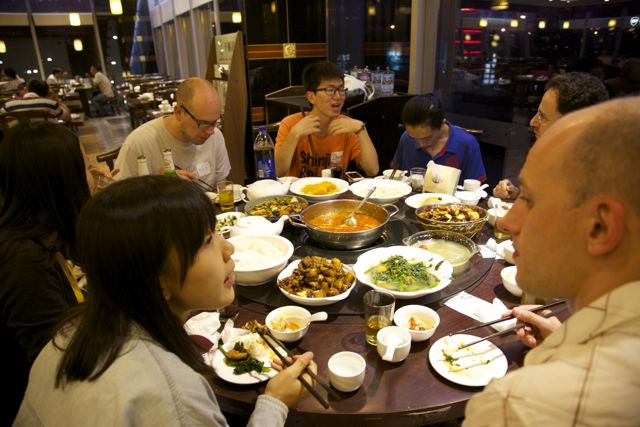LEGO2NANO - Day 1
09 September 2014
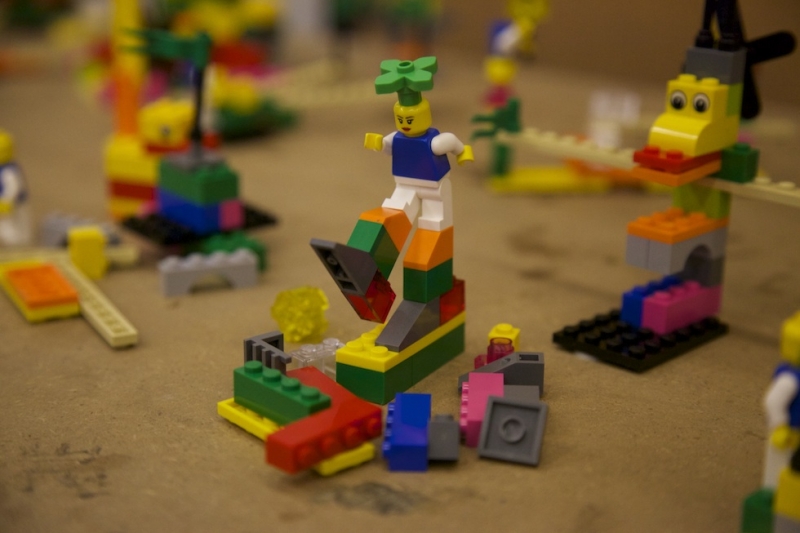
Excited and slightly jet lagged students and staff arrive at the Lifelong Learning Lab, in the vast art & design faculty, Tsinghua University Beijing. This is the fourth UK-China summer school of its kind, and the second to take the title LEGO2NANO.
Citizen Cyberscientist and head of the summer school Francois Grey welcomed everyone with the announcement “This is not about lego, it’s not actually about nano either” He emphasized that the ongoing project is about new ways of learning, about how changing how people learn affects how they operate in the world, and affects happiness. Creativity in learning, and hands on experience, the freedom to experiment and make mistakes are vital – especially for high school kids, and especially in China.
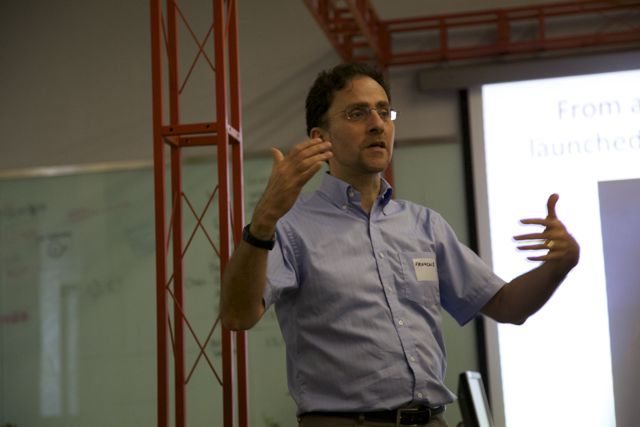
Each person in the project stood up to introduce themselves, and we welcomed our first guest speaker, Jiang Xueqin of Tsinghua Fuzhong, the University's affiliated high school. He is the author of the book Creative China, which has been the subject of much public interest in China and internationally.
Jiang shared his thoughts on creativity in Chinese schools and how to stimulate more innovation in education. This was a great starting point for the LEGO2NANO school, where the goal of our week together is to produce tools that will stimulate scientific creativity in Chinese schools.
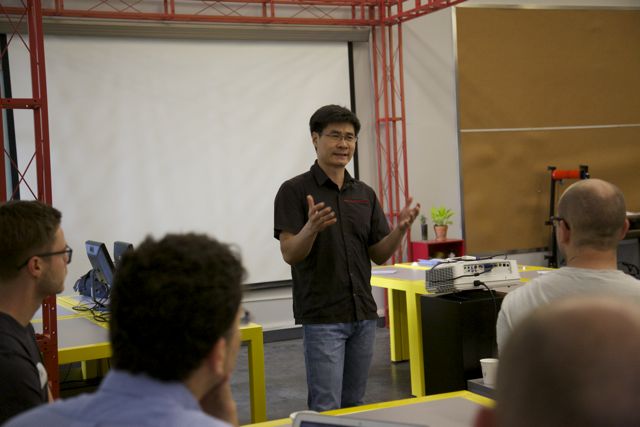
Next up was Alice Pyne, who is just finishing a PhD in Atomic Force Microscopy, and a key member of the winning team at LEGO2NANO 2013. She led us through a practical guide to the AFM, how it works, it's core components, what you can do with it, and what we can learn from the nano world. She was joined by Joe Bailey another LCN PhD student who has been pivotal in organising the summer school, to talk us through what the teams achieved last year, and how much ground had been covered since by the member team at the Institute of Making.
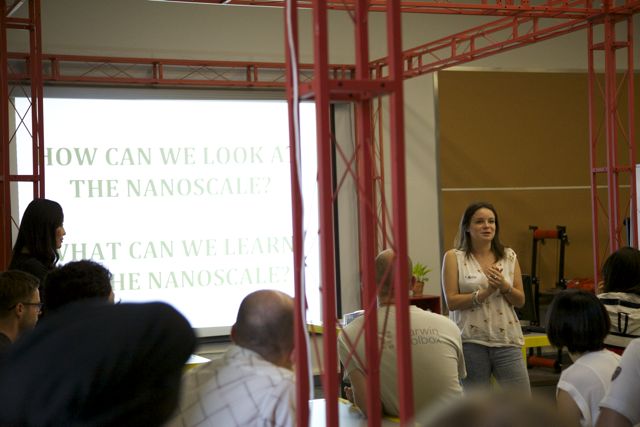
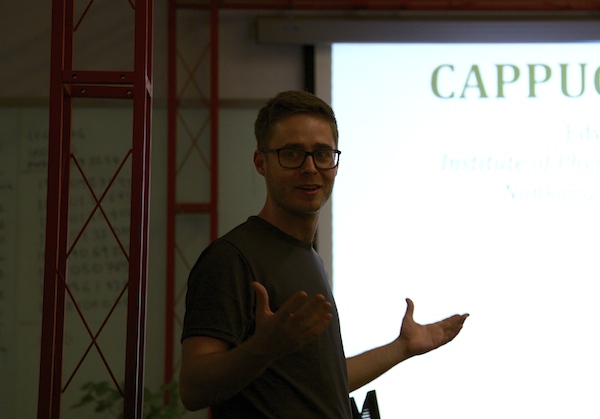
Finally, Tina Holm Sørensen, who introduced the Lego Foundation, a charitable organization started by the LEGO family, to promote creative learning. She then led us in a creative play session using LEGO, to get the participants communicating, and working as a team.
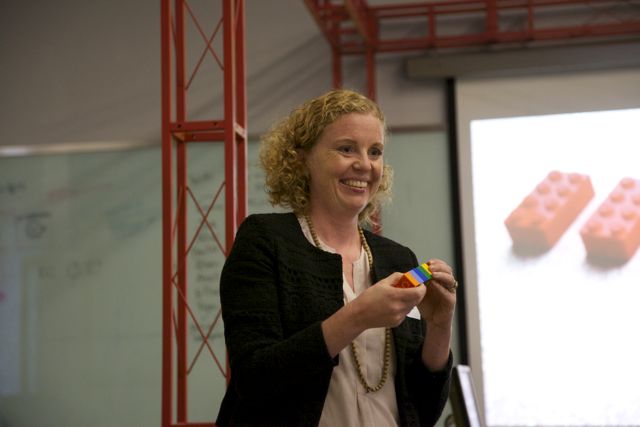
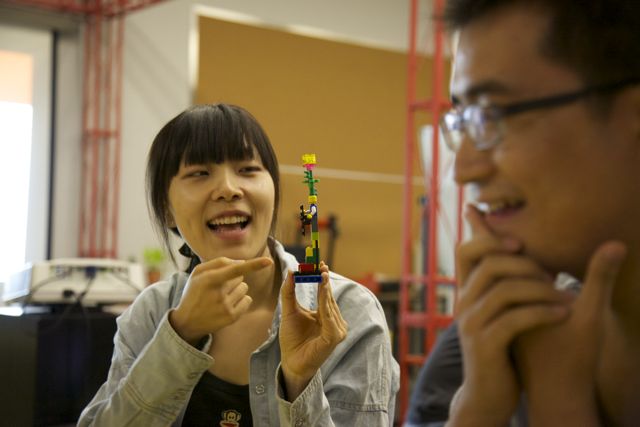
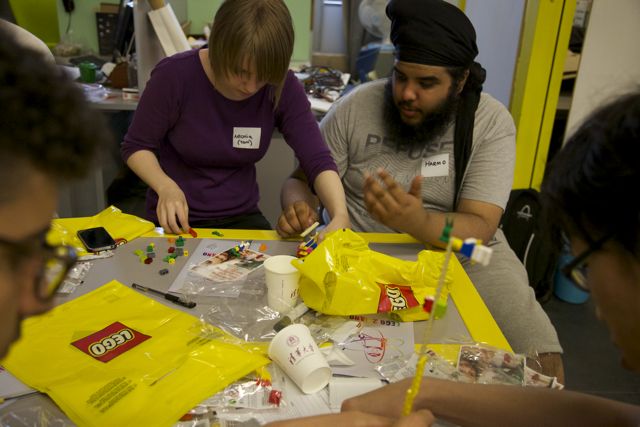
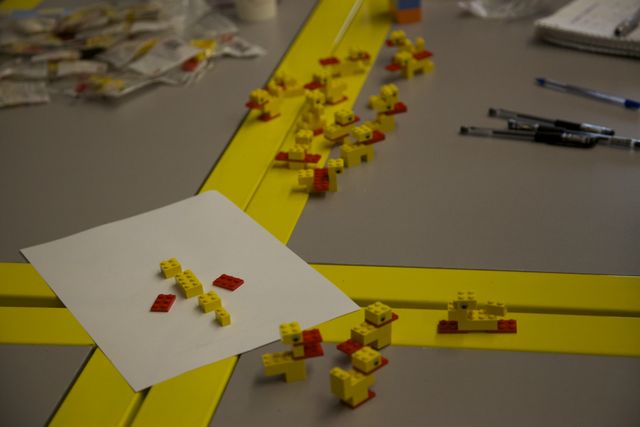
Four key groups were then chosen to drive the LEGO2NANO project forward: hardware, software, crowdfunding and crowd sourcing, and the discussions continued at length over a fantastic communal meal at a local restaurant - a treat for our UK students after the aeroplane food.
Many thanks to the student and staff organisers at Tsinghua University for their hard work in making us so welcome.
Follow the project on twitter #LEGO2NANO
